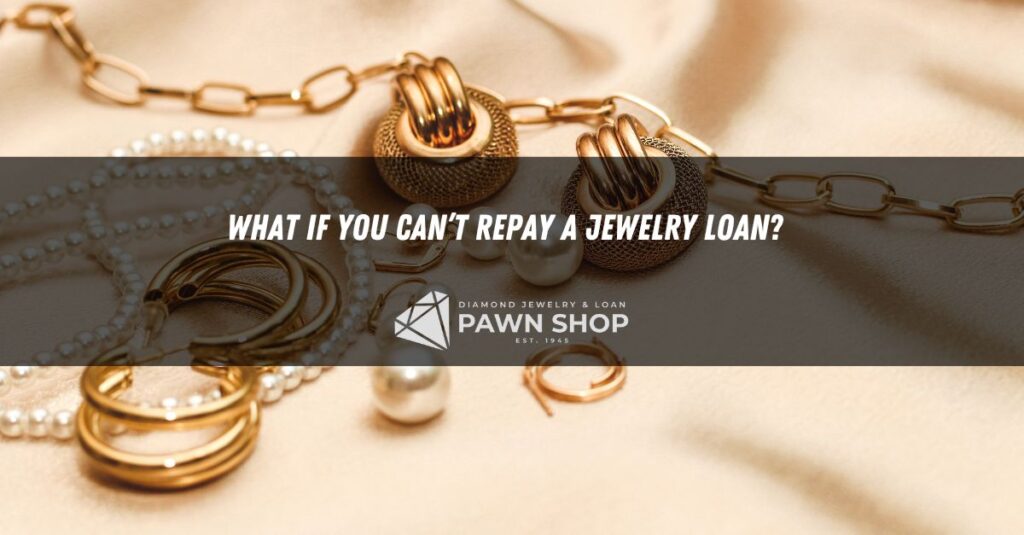Taking out a pawn shop loan on your treasured jewelry is a significant decision. While the goal is always to repay it and reclaim your item, circumstances can change. No one plans to default on a loan, but understanding what happens if you can’t make your payments is a smart and responsible step. It empowers you with knowledge and helps you navigate the situation with confidence.
This guide will walk you through the process of defaulting on a jewelry loan. We’ll explain your rights, the risks involved, and the options available to you. Knowing what to expect can remove the fear of the unknown and help you make the best choice for your financial situation.
Defining a Pawn Shop Loan Default
When you secure a loan from a pawn shop like Diamond Jewelry & Loan, you agree to a set of terms outlined in your loan agreement. This contract specifies the loan amount, the interest rate, and the repayment deadline.
A default occurs when you do not repay the loan, including any accrued interest, by the agreed-upon date. At this point, the loan is considered “in default,” which triggers a specific set of procedures regulated by state and local laws. It’s crucial to read your loan ticket and agreement carefully, as it contains all the details about your loan’s maturity date and the consequences of non-payment.

What Happens After a Pawn Shop Loan Due Date?
Missing your payment deadline doesn’t mean you instantly lose your jewelry. Most pawn shop loans come with built-in protections for you, the borrower.
Grace Periods and Extensions
Pawn shops are regulated businesses, and in many places, including California, there are legally mandated grace periods. This is an additional window of time after your loan’s official due date during which you can still repay your loan and reclaim your item. The length of this grace period varies, so it’s important to ask your pawnbroker about the specific policy.
Beyond the formal grace period, many pawn shops offer the option to extend your loan. By paying the interest that has accrued, you can renew the loan for another term, giving you more time to come up with the principal amount. This is a common and helpful solution if you just need a little more breathing room.
How Your Jewelry is Handled
If a loan defaults and the grace period passes without payment, the pawn shop gains legal ownership of the collateral—in this case, your jewelry. Here’s what happens behind the scenes:
- Holding Period: Even after default, there’s often an internal holding period before the item is put up for sale. Your jewelry is kept securely in storage during this time.
- Preparation for Sale: Once the holding period is over, the item is cleaned, priced, and prepared for display in the pawn shop’s retail section.
- Forfeiture: At this stage, you have forfeited your ownership of the item. The jewelry now belongs to the pawn shop, which will sell it to recover the loan amount they lent to you.
Your Rights and Protections in a Pawn Shop Loan
One of the most significant advantages of a pawn shop loan is the limited risk to you. The loan is secured solely by your collateral.
- No Credit Score Impact: Defaulting on a pawn shop loan does not affect your credit score. Pawn shops do not report payment history to credit bureaus like Experian, Equifax, or TransUnion.
- No Debt Collectors: You will not be pursued by debt collectors. The pawn shop’s only recourse is to take ownership of the item you pledged as collateral.
- No Legal Action: The pawn shop cannot sue you to collect the debt. The transaction is self-contained; your collateral is the only thing at stake.
These protections make pawn loans a safe way to borrow money without risking your broader financial health or credit standing.
Exploring Your Options Before Default
If you foresee difficulty repaying your loan, being proactive is your best strategy. Communication with your pawnbroker can open up several possibilities.
Renegotiate or Restructure
Don’t hesitate to speak with the pawn shop manager. Explain your situation and ask if there are flexible solutions available. In some cases, you might be able to work out a different payment plan or extend your loan.
Sell Part of Your Collateral
If you secured a loan with multiple pieces of jewelry, you may have the option to sell one or more of the items to the pawn shop. The value from the sale could be used to pay off the loan on the remaining piece you wish to keep. This allows you to settle your debt while still recovering some of your valuables.
How Diamond Jewelry & Loan Supports You
At Diamond Jewelry & Loan, we understand that life is unpredictable. We operate with a commitment to fairness and transparency, especially when our clients face financial challenges. Our process is designed with dignity and respect at its core.
We believe in clear communication. Our team will explain all the terms of your pawn shop loan upfront, including the due date, grace period, and all available options. If you’re struggling to make a payment, we encourage you to talk to us. We will work with you to find a solution, whether it’s an extension or another arrangement. Our goal is to provide a helpful service, not to take possession of your cherished items.
Find Clarity and Confidence
Taking out a pawn shop loan should be a stress-free experience. Understanding your rights and options is the first step toward feeling secure in your decision. You deserve to work with a lender who values you as a customer and treats you with respect throughout the process.
Ask us about the safeguards built into our loan process. We’re here to walk you through your options—no pressure, just clear information. Contact or visit Diamond Jewelry & Loan in Los Angeles today.


